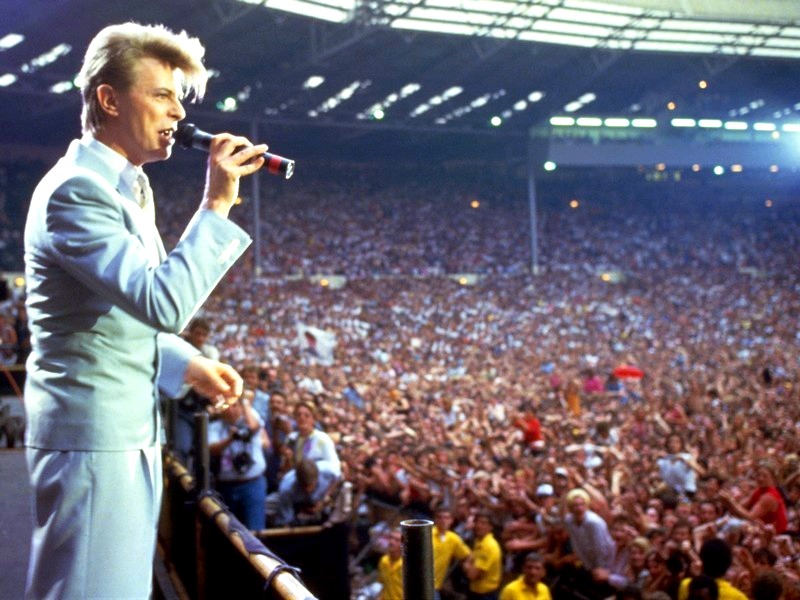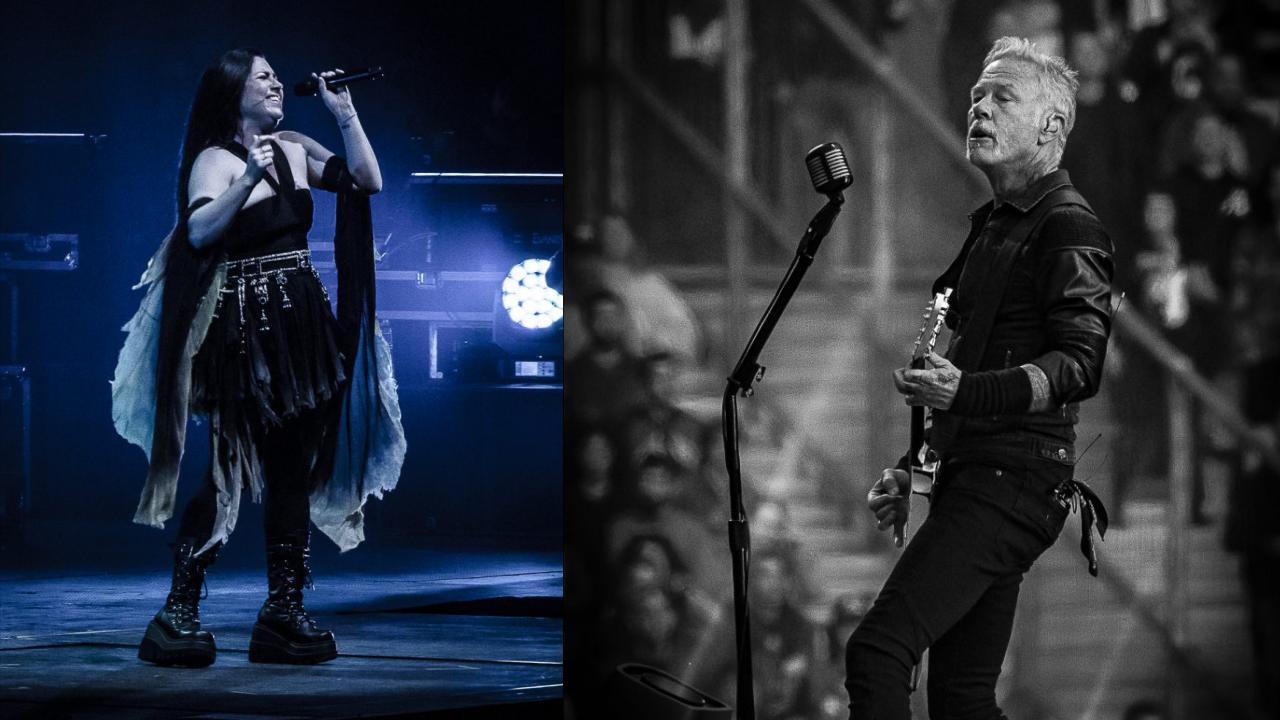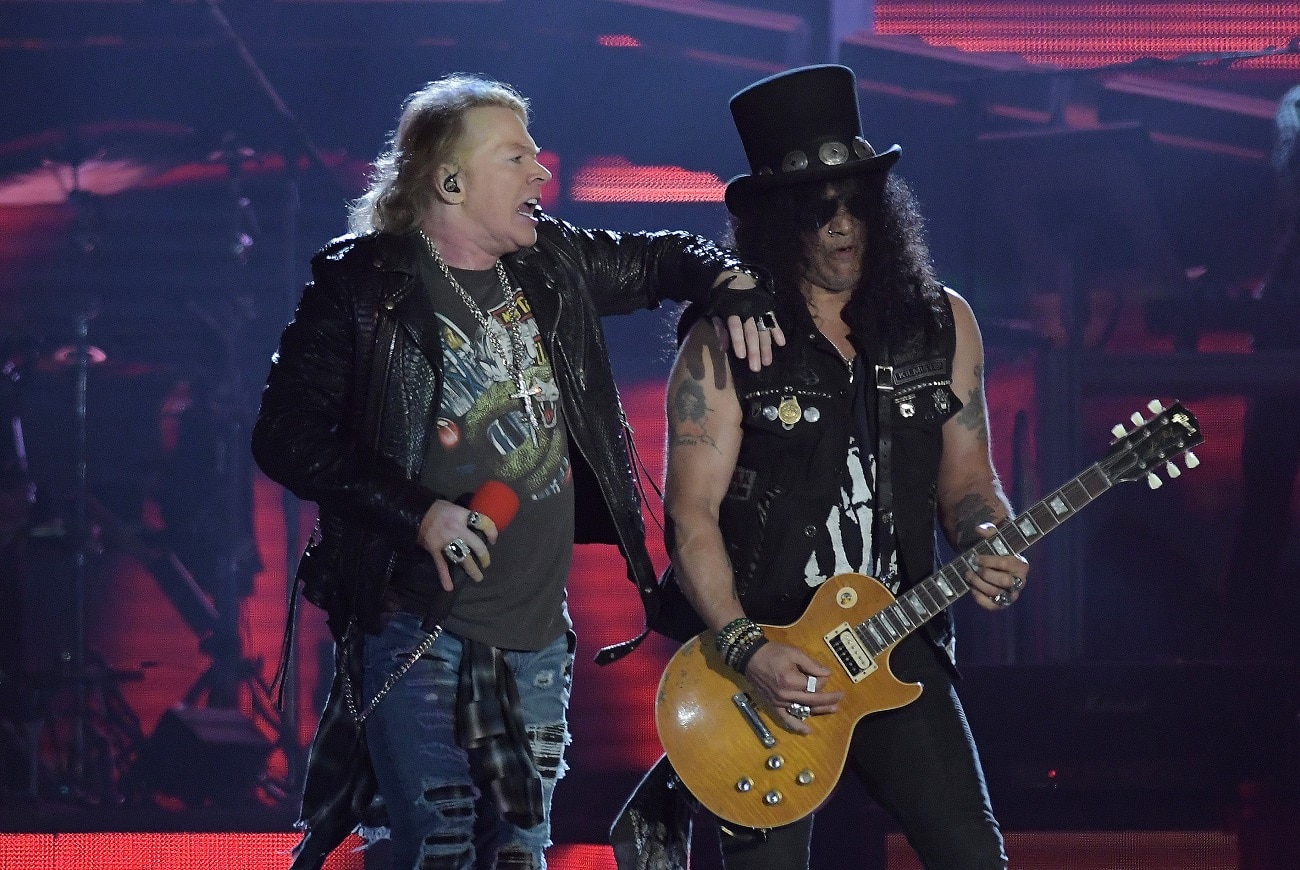
Saluer David Bowie pour son anniversaire
Le dimanche 8 janvier marque ce qui aurait été le 76e anniversaire de David Bowie. Bowie est décédé le 10 janvier 2016 – deux jours seulement après son 69e anniversaire. Sa mort a suivi une bataille privée de 18 mois contre le cancer, et selon les rapports des initiés dans le camp de Bowie, la légende de la musique est morte d’un cancer du foie, après avoir souffert d’une poignée de crises cardiaques ces dernières années. Bowie laisse derrière lui sa femme depuis 23 ans, le top model Iman, son fils, le réalisateur Duncan Jones, et sa fille avec Iman, Alexandria.
Le documentaire sur Bowie réalisé par Brett Morgen et acclamé par la critique, Moonage Daydream, vient de sortir. Morgen, qui est surtout connu pour des films tels que The Kid Stays In The Picture, Cobain : Montage Of Heck et Jane, a été cité par Rolling Stone comme ayant déclaré : « Vous savez, il pourrait y avoir quelques éléments dans Moonage Daydream que la succession n’est pas heureuse de voir figurer. Mais ils m’ont donné le montage final, et ne m’ont jamais dit que je devais inclure telle ou telle chanson, ou faire des changements. Dès le début, c’était le cas : Ce n’est pas le film de David. Il ne va pas le voir. C’est David Bowie par Brett Morgen. Faites-en votre film. »
Le nouveau livre Bowie 75, qui examine la vie et la carrière de la légende du rock à travers 75 images distinctes, est sorti récemment. Le livre de 208 pages est vendu au prix de 75 dollars. Selon l’annonce, « l’auteur Martin Popoff vous guide à travers les 27 albums studio de Bowie, ses nombreux singles, sa collaboration avec des artistes comme Iggy Pop, Lou Reed, Tina Turner et Queen, ses collaborations avec les légendaires guitaristes Mick Ronson, Stevie Ray Vaughan, Nile Rodgers et Earl Slick. Plus, des rôles au cinéma et à la télévision, des performances live et plus encore. »
Joe Elliott, fan de longue date et leader de Def Leppard, nous a dit que l’album Scary Monsters (And Super Creeps) de David Bowie, sorti en 1980, a inspiré la plupart de la musique produite en Grande-Bretagne pendant le reste de la décennie : [“When you take the Scary Monsters period, which was probably Bowie’s’ last big artistic statement, because with Let’s Dance, I think it just became a commercial — I wouldn’t say ‘sell out’ — but it was a commercial success he never achieved in the past. But it was more based on ‘normal’; all of a sudden, Bowie’s wearing a tie and a suit and bleachin’ his hair blonde and having it short. But Scary Monsters, with things like ‘Ashes To Ashes’ — you can see where Duran Duran got a lot of their stuff from, and even Spandau Ballet, who would come later on.”] (:26 OC : . . . venir plus tard)
En 1983, David Bowie a expliqué comment et pourquoi le personnage de « Ziggy Stardust » a vu le jour : [“I think I was quite happy to buy into the idea of reinvention, up until the beginning of the ’80s, really. When I was a teenager, I had it in my mind that I would be a creator of musicals — I sincerely wanted to write musicals for the West End and for Broadway, whatever. I didn’t see much further than that — as a writer. And I really had the idea in my head that people would do my songs. And I was not a natural performer; I didn’t feel at ease onstage — ever. And I had created this one character — ‘Ziggy Stardust’ — that it seemed that I would be the one who played him, because nobody else was doing my songs and the chance of my getting a musical mounted were very slim, and so, I became ‘Ziggy Stardust’ for that period.”] (40 OC : . . . pour cette période)
David Bowie a expliqué que son travail avec le producteur Brian Eno, à la fin des années 1970, a façonné à jamais sa façon de concevoir les chansons et la musique : [“The whole idea of using a recording studio as an instrument, of not necessarily thinking that you have to be prepared totally before you go in; that accidents will happen and sometimes planned accidents work our really well. If there’s a bad note, you can layer that note several times with other instruments and suddenly that bad note sounds like an extraordinary piece of arrangement.”] (:19 OC : . . . morceau d’arrangement)
Même si l’on se souviendra toujours de David Bowie pour avoir repoussé les limites de la créativité, il a tenté jusqu’au bout de témoigner et de donner une voix à la détresse du monde qui l’entourait : [“Some kind of statement or indictment of an uncaring society, or particularly the response to what’s happening in terms of the homeless, people who are totally uncared for in terms of education or being fed properly, or housed properly. There’s such a diversity of political stance, where the high powered authority seem to be far more concerned with their relations with Russia or the Middle East and the whole idea of what’s happening at home, on the streets with the indigenous people seems to be swept under the carpet.”] (:29 OC : . . . sous le tapis)
Quelques jours seulement avant sa mort en 1980, John Lennon se souvenait avec émotion de sa brève – mais puissante – collaboration avec David Bowie en 1975, qui a abouti au premier succès de Bowie dans les charts américains, « Fame ». [“Bowie was around and we were talkin’ and that — he’d say, ‘Come down,’ and I found myself doin’ that. So, he’s fiddlin’ round, he writes ’em in the studio. Y’know, he goes in with about four words and a few guys and stars layin’ down this stuff. And he has virtually nothing — he’s makin’ it up in the studio. So, I just contributed whatever I contributed, y’know? Like, backwards piano and (sings) ‘oooh,’ and a couple of things — repeat of ‘Fame.’ And then we needed a middle-eight, so we took some Stevie Wonder middle-eight and did it backwards (laughs), y’know — we made a record out of it, right? So, he got his first Number One — so I felt that was, like, a karmic thing, y’know, with me and Elton (John) I got my first Number One (with ‘Whatever Gets You Through The Night’) and I passed it on to Bowie and he got his first Number One — and I like that track, y’know?”] (:37 OC : . . . ce titre, vous savez)
En 2003, Bowie a parlé de la mortalité lors d’une rare apparition télévisée dans le talk-show britannique Parkinson : [(David Bowie): “I had this poetic, romantic, kind of juvenile idea that I would be dead by 30. ‘Cause that’s — all artists think: ‘I’ll be dead by 30! Y’know, I’m going to get TB and die.’ (Laughs) But you don’t, y’know, you get past it and then suddenly, you’re 30 and you’re 40 and then you’re 50 and 57, and then all that. And it’s a new land, y’know?” (Parkinson): ‘Sure.” (Bowie): “I’m a pioneer — me and my kind are just sort of scraping the edge of what this think is about, being a rock and roller at the age of 57. But my revenge is all these bands that are below us, they’ve got to do this — so, they kind of say: ‘Yeah, they’re like, really old’ — but secretly they’re thinking, ‘I better watch how he does it, ’cause I’m gonna get there soon (laughter).’”] (:36 OC : … tu y seras bientôt (rires))



